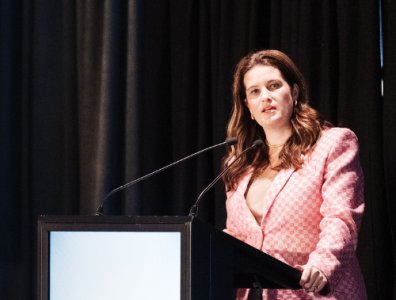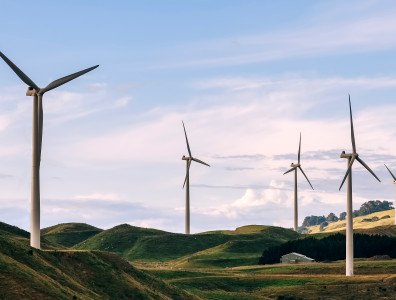The challenge of decarbonising air travel
There is no disagreement in the aviation industry that climate change is the biggest issue they have faced for some time.
Although statistically aviation currently contributes only 2-4% of worldwide carbon emissions, but as other industries reduce their carbon emissions this is likely to grow unless it is addressed.
Chair of both New Zealand’s Chapter Zero and Air New Zealand, Dame Therese Walsh, says “climate change is an existential crisis for an industry that won’t be sustainable without intervention”.
Dame Therese says the global pandemic has been a good lesson in reminding New Zealand of its vulnerability when it comes to distance. “People in other countries can talk about cutting back on travel, but as a country and a trading nation we need to connect with the world.”
So, while other nations talk about cutting back on travel to reduce carbon footprints, the pressure is on a country that is so reliant on flying to find a solution that is kinder on the Earth.
And there has been no slowdown in flying, in fact, as the world opens up again, there is a travel surge and in New Zealand that means flying.
Transport is one of New Zealand’s largest sources of greenhouse gas emissions, responsible for 17 percent of our gross emissions. The government’s Emissions Reduction Plan (ERP) has a strong focus on zero emission vehicles, reduction of emissions from freight transport and better public transport.
But the path to decarbonising aviation is a little less clear with the ERP talking of developing and setting targets and seeking a sustainable aviation fuel mandate design proposal this year.
In June, the International Air Transport Association (IATA) and airlines expressed concern that the development of alternative sustainable aviation fuels (SAF) must be sped up so that the industry can meet its net-zero emissions target by 2050.
SAF are currently in short supply and more expensive than conventional jet fuels. Fuel made from feedstocks such as cooking oils and animal waste, is expected to make the biggest contribution to airlines achieving net-zero. Future technologies such as electric and hydrogen-powered aircraft are still unproven and, if developed, could still take decades to replace existing aircraft.
The board’s focus on climate change is a risk both in terms of timing and commerciality according to Dame Therese.
“There is a real risk of burning cash on early technology that isn’t quite ready, at the same time we have to move quickly. Setting targets is necessary but they rely on many unknowns and future developments. There is a tension there.”
And that is a valid concern. Dr Inga Smith, co-director of Otago’s Climate Change Research Network He Kaupapa Hononga, says Air New Zealand was reported as saying that by 2013 it "expected biofuel to make up about 10% of its total fuel burn.
“That did not happen, and it is still not possible to buy sustainable aviation fuel in New Zealand. The ‘magic bullets’ in the ERP are biofuels and hydrogen, and it appears that the Government is prepared to throw money into work on these.”
Air New Zealand’s board and management have been developing and implementing a decarbonisation strategy through risk committees, regular ‘deep dive’s’, a sustainability advisory panel and working with experts.
“Sustainable aviation fuel alternatives will be the number one thing to reduce carbon emissions, but we will also be gradually sourcing aircraft that use low carbon technology followed by activities that have been well underway like getting rid of plastics onboard,” says Dame Therese.
“We’ve been proactive and developed good partnerships with multiple manufacturers and technology innovators. We will replace all our new jets by the end of this decade.”
Air New Zealand Director and a long-time leader in the transport industry, Dean Bracewell, says it also makes good commercial sense to address climate change because they’re seeing a change in consumers who want to be informed and corporate customers who have to meet their goals.
‘We risk losing the support of the traveling public if we don’t get it right. But it also creates an opportunity; not all airlines will work at the same pace, so for Air New Zealand to keep progressing will create a competitive advantage.”
Running the main gateway to New Zealand, means Auckland Airport directors know it is essential to find a solution to the carbon reduction requirements.
“It’s easy to say we should cut back on overseas holidays, but the reality is New Zealand is a trading nation and it is essential we are in contact with our trading partners, plus a major amount of our trade goes in and out of the county in the bellies of passenger airplanes,” says Chair Patrick Strange.
He says climate change has been front and centre of the Auckland Airport board for a long time, initially focusing on the impact of rising sea levels on the airport, but more recently working closely with airlines to be in a position to support the emerging low-carbon aircraft technologies. These include having the infrastructure to support alternative fuels: appropriate underground pipes, storage tanks, and electricity grids, for a start.
“We are in very good shape to meet our net zero by 2030 commitment for our own emissions, but these are dwarfed by what the airlines produce in the air.”
Dr Strange says the pressure to address climate change that is driving directors comes from both customers and shareholders, particularly the international investment community.
“But we are all committed to this. Everyone wants to do the right thing. We all live on this planet, and we are all worried about the world we leave for the next generation”.
June Webinar: Director Lens on Reducing Emissions
Thursday 30 June, 5.00-6.15pm
How does a national airline go about reducing its carbon emissions and what relevance might this have for other businesses looking to reduce their own carbon footprint?
Join us in June to hear from Air New Zealand Chair Dame Therese Walsh and fellow director Dean Bracewell about Flight NZ0 – Air NZ’s commitment to reaching net-zero carbon emissions by 2050. This will be a first-hand account of some of the challenges, lessons and experiences from around the Air NZ board table.
We will also hear from Secretary for the Environment Vicky Robertson, about governance implications from the recently released Emissions Reduction Plan. Vicky will share a deep dive into some of the key recommendations of the plan and how they will impact New Zealand businesses.



